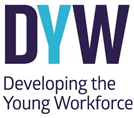Plot
Divided City is set in Glasgow. Two boys meet when they witness an asylum seeker (Kyoul) being stabbed, and bond over a shared love of football. But Graham is an only child of a Protestant family, and supports Rangers. Joe is from a big Catholic family, and supports Celtic. Together the two boys try to help Kyoul, and learn a lot about themselves, their families, and the shared history of sectarian Glasgow.
Author – Theresa Breslin
Guardian interview: Bringing the past to life (2010)
Discover more about Theresa Breslin
|
Themes – universal ideas
Conflict, diversity, empathy, human rights, loyalty, prejudice, religion, rights and responsibilities.
More to explore – motifs, symbols, context, setting
A&E, asylum seekers, conflict resolution, divided cities, family loyalty, football for social change, football rivalries, gangs, Glasgow history, Irish history, Irish Potato Famine, knife crime, mental health, migration, NHS, Old Firm, Orange Order, refugees, sectarianism, UN Convention on the Rights of the Child (UNCRC)
Did you know?
The Citizens Theatre in Glasgow dramatised Divided City for pupils from local schools.
Further reading
Discover these titles and more
|
If you enjoyed Divided City, try these titles:
Welcome to nowhere by Elizabeth Laird follows a family escaping from Syria and their life in a refugee camp.
Mosi’s War by Catherine MacPhail also involves asylum seekers in Glasgow. Patrick and Mosi become friends, but why is Mosi so terrified?
If you would like more football fiction, try the Foul Play series by Tom Palmer. Danny is football mad, but when he witnesses a crime, he finds himself trying to solve a mystery.
For more fiction based on the Potato Famine, try The hunger : the diary of Phyllis McCormack, Ireland 1845-1847 by Carol Drinkwater.
Literacy and Language
Theresa Breslin used real places in Glasgow but changed some of their names. Bridgebar is actually Bridgeton, and the Garngath is based on the Garngad.



